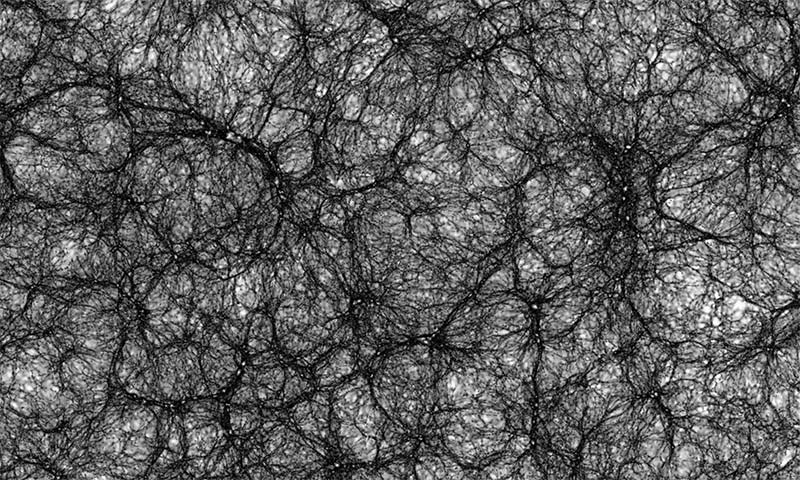Complex Systems is a project designed for students at Florence’s Italian and international Academies of art with the aim of using the Tomás Saraceno. Aria exhibition (Palazzo Strozzi, 22 February–1 November 2020) as a trigger for research into the theme of interdependence among mutiple systems in the scientific, social and cultural spheres.
Tomás Saraceno’s works prompt a change of perspective, moving on from a vision of man at the centre of the world to a vision in which man is part of a complex universe that ceaselessly reformulates its balances. The Complex Systems educational project takes its cue from an encounter with Saraceno’s work and is open to the different declinations of contemporary artistic output, offering students a field for analysis and research.
The project has a duration of four months and offers the new generation of artists an opportunity to explore the theme proposed in a cycle of events (lectures, talks with artists and scientists, tours of the exhibition, working tables) and to stimulate the production of new works of art. In the May-June period, an exhibition curated by the students themselves will be held (18–28 June) to complete the work done in the first phase.
The Manifattura Tabacchi supports the initiative and is making available its spaces to develop and host the exhibition project: thus students will have an opportunity to work on the different aspects involved in producing, organising and communicating an art project from start to finish.
The project is realised in collaboration with the Accademia di Belle Arti di Firenze (Prof. Marco Raffaele), California State University (Prof. Marsha Steinberg), the Fondazione Studio Marangoni (Prof. Lucia Minunno), LABA Libera Accademia di Belle Arti (Prof. Matteo Innocenti), IED Firenze (Prof. Daria Filardo) and Manifattura Tabacchi.
Special thanks to Leone Contini and Andrea Ferrara who have helped to expand the debate on the theme with their talks by addressing it from an artistic and scientific perspective.
Guest biographies
Leone Contini read philosophy and cultural anthropology at the University of Siena. His research travels the borderline between creative practice and ethnographical work. He has held exhibitions and shown work at: Centre Pompidou, Paris; SAVVY, Berlin; PAV, Turin; IAC, Lyon; Manifesta 12, Palermo; Fondazione Sandretto, Turin; Museo delle Civiltà, Rome; Mudec, Milan; Quadriennale, Rome; Cittadellarte, Biella; Mart, Rovereto; Delfina Foundation, London; Kunstraum, Munich and Kunstverein Milan; and Khoj, New Delhi. In 2017 he won the second edition of the Italian Council. In 2018–19 he was a fellow of the Akademie Schloss Solitude, Stuttgart.
Andrea Ferrara is Professor of Cosmology at the Scuola Normale Superiore in Pisa and Joint Professor at the Institute for the Physics and Mathematics of the Universe in Tokyo. He conducts research of a theoretical and numerical nature on the formation of the first galaxies and black holes in the primordial universe. He has produced over 400 scientific publications which have been quoted at least 20,000 times, with an H-index of 71. He has received various international awards including the prestigious Blaauw Prize, Tinsley Prize and Severo Ochoa Fellowship, as well as an ERC Advanced Grant. He edits various international scientific journals and figures on the list of Italy’s Top 100 Scientists. He chairs the Square Kilometer Array (SKA) Advisory Board, and he is also actively involved in scientific communication with articles and public lectures, for which he has been awarded the G. Giorgi Medal.
For further info: edu@palazzostrozzi.org
